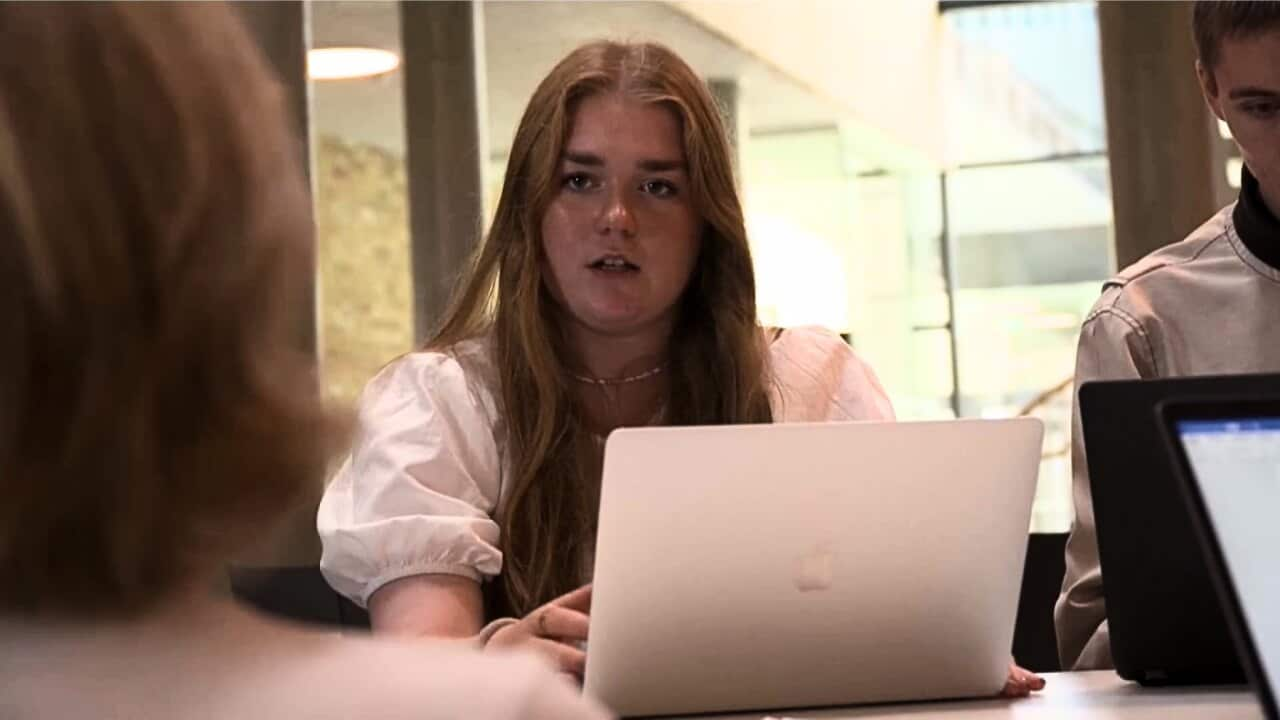TRANSCRIPT
For students here at Horsens Gymnasium in Denmark's Jutland, it's back to school - with a new classroom tool - OpenAI’s ChatGPT.
17-year-old student Jacob Yde Dideriksen says he and his classmates are are no strangers to AI-generated chatbots, including ChatGPT, which launched last November.
"As soon as it came out, people were talking about it and, you know, talking about how they could use it. And they used it almost day one."
But there were immediate concerns. The school’s English teacher, Mette Mølgaard Pedersen, says it took just weeks until obviously AI-generated texts began appearing on her desk.
"It hit the Danish news cycle around the first of December last year, and it was two or three weeks later that the first essay, which was ChatGPT-generated, arrived on my desk - actually three of them. So very quickly after the students picked it up immediately."
That’s when Pedersen began formulating a project for using ChatGPT in the classroom, rather than blocking it.
"My experience was that the students would use it without any kind of thought, and in that way it becomes an obstacle to learning - and learning is the whole project here. But if we could change the way they use it so that it becomes a tool for learning, then we would have won a lot, both in terms of giving the students a new tool for learning, but also in terms of the relationship with the students. Because if we have the conversation with them about how to use AI, then the whole idea that they can't talk to us about it because it's forbidden, goes away."
Five high schools are now taking part in the two-year project, including Horsens Gymnasium, which teaches around 1,200 students aged between 15 and 20.
"Some students have a home life with parents who have say an academic education, who can help them. They have a sparring partner. They have an extra study buddy. Some students don't. If they have ChatGPT, for example, to make a list of the most important points in the text, which they find difficult to understand, and then go back and read the text and get a better understanding, then that's beneficial. And the whole idea of sort of scrapping everything to do with computers is, to my mind, unrealistic."
But many other educators are taking the opposite route - seeing a need to “ChatGPT-proof” test questions and assignments. For some instructors that means a return to paper exams, after years of digital-only tests.
Some professors are requiring students to show editing history and drafts to prove their thought process.
Other instructors are less concerned. Some students have always found ways to cheat, they say, and this is just the latest option.
Education consultant Tine Jensen, who’s a member of the Danish Ministry of Education’s expert group on ChatGPT, says it’s important to have open conversations with the students.
"Where we are now, it's so important to have open conversations with the students and to allow them to do things. Because many places, what is the actual fact of the moment is that you can't speak about it. Because then you are sort of branded as a bad person, you know. And that's not helpful at all to developing healthy, curious, competent young people."
The Danish experience may be instructive for Australia.
Earlier this year, state governments imposed temporary bans on ChatGPT in public schools, citing concerns over plagiarism.
Now, Education Ministers have decided to make A-I available in all Australian schools from 2024, starting from day one, term one.












